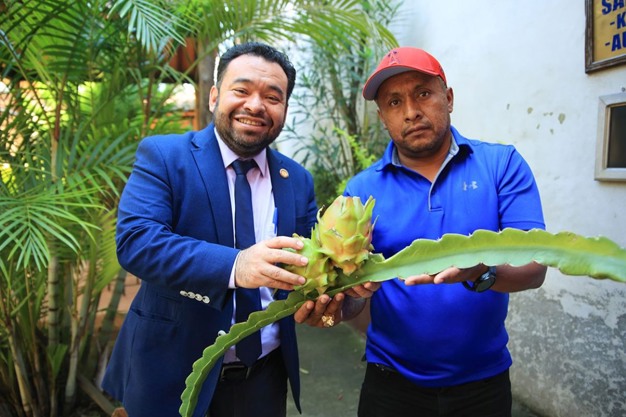Guatemala's fruit sector has the potential to diversify into quality products that can access international markets. One of these products is pitahaya, as highlighted by the National Meeting of Pitahaya Producers, held on 6 November in the capital of Chimaltenango.

Pitahaya is rich in vitamin C, antioxidants, and fiber. It also has a low-calorie content, making it a healthy option for consumers. It's mainly produced in regions with warm and dry climates such as the departments of Chiquimula, Zacapa, and Jalapa, as well as in some areas of the central and western highlands, such as Sololá and the South coast.
It is a relatively easy fruit to grow, requires less water than many other crops and can produce fruit several times a year, which increases its profitability. Its main markets are the United States, Europe, and Asia.
Nick Estrada, the deputy minister of Rural Development, authorities from the VIDER Fruit and Agro-industry department, and producers from different regions of the country attended the meeting.
"For us, it's vital to support producers who desire to export. Our main interest is to generate income with crops that can be exported," stated Deputy Minister Estrada.
"The main reason for this meeting is to ensure that all these producers have access to a network or a mechanism that can support them in the different needs that they have, to expand the market and production of pitahaya," he added.
The Ministry of Agriculture, Livestock, and Food supports producers associating, as it falls in line with one of its Strategic Guidelines: promoting inclusive value chains, rural entrepreneurship, and commercial ties.
For more information:
Ministry of Agriculture, Livestock and Food
www.maga.gob.gt
